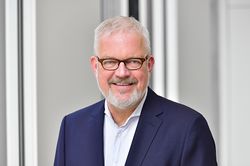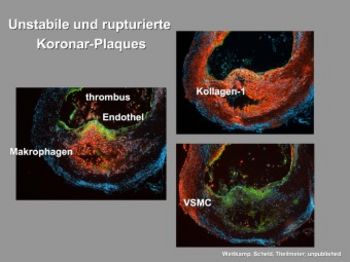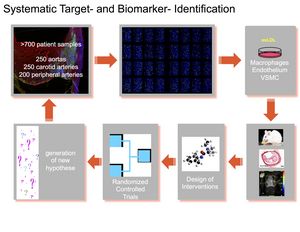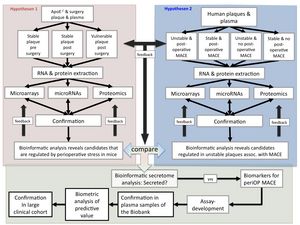Research
Research
Perioperative major adverse cardiac events (MACE) are frequent (≈ 9% of all procedures). MACE thus claims a significant portion of the therapeutic benefit of surgical procedures. Prediction, diagnosis and treatment of this condition are difficult. 80% of all MIs are caused by rupture of unstable plaques. This proportion is declining due to widely used plaque stabilizing statin therapy. The rates of events and the burden of myocardial infacrtions (MI) has however not changed significantly. The identification of biomarkers for improved detection of patients at risk prior to surgery is thus warranted. We have devised a complex strategy to
- Identify candidate molecules for detection and therapy
- Test these candidates in vitro, ex vivo and in vivo
- Design new hypothesese based on the derived information





